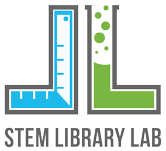by Callie Oliver | Jan 4, 2019
(UE.ESS2A.b) Earth’s major systems are the geosphere (solid and molten rock, soil, and sediments), the hydrosphere (water and ice), the atmosphere (air), and the biosphere (living things, including humans). These systems interact in multiple ways to affect Earth’s...
by Callie Oliver | Jan 4, 2019
(UE.ESS1A.a) The sun is a star that appears larger and brighter than other stars because it is closer. Stars range greatly in their distance from Earth.
by Callie Oliver | Jan 4, 2019
(UE.LS2B.a) Matter cycles between the air and soil and among plants, animals, decomposers, and microbes as these organisms live and die. Organisms obtain gases, and water, from the environment, and release waste matter (gas, liquid, or solid) back into the...
by Callie Oliver | Jan 4, 2019
(UE.LS2A.d) Newly introduced species can damage the balance of an ecosystem.
by Callie Oliver | Jan 4, 2019
(UE.LS2A.b) Some organisms, such as fungi and bacteria, break down dead organisms and therefore operate as “decomposers.” Decomposition eventually restores (recycles) some materials back to the soil.

